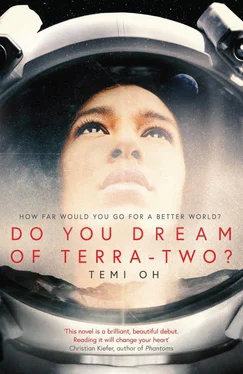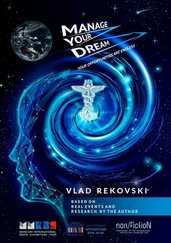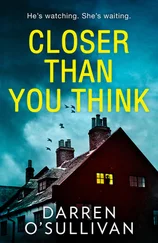Only, when he saw the blond head of hair, his spirits sank further.
‘Hey,’ Harry said. Jesse sat up.
‘Hey.’ From his vantage point, Harry looked frighteningly tall.
‘I hear you want to be one of us. Part of the team.’
‘I was picked. Just like you,’ Jesse said. ‘I am part of the team… now.’
‘Okay.’ Harry smiled. ‘I think it’s time for you to try and prove it.’
IN HARRY’S EARLIEST MEMORY, he is playing chess opposite his father in the dining room. He’s so small that his feet do not yet touch the marble floor. His father is teaching him how the knight captures – in an L shape, two squares vertically and one square horizontally, or vice versa. To demonstrate this principle, his father arranges every pawn on the board in a circle around the knight and asks Harry which pieces he can capture. Each time he reaches his hand to touch the wrong one, his father smacks it back, resulting in a hideous stalemate. Harry is terrified and tired, and even when he picks the correct one, his father, rightly, accuses him of ‘just guessing’.
Harry’s eyes roll with sleepiness. ‘I don’t care anymore,’ he whispers, realizing as he says it that it’s true. ‘Please, can I just go to bed?’ The weight of his exhaustion like a millstone around him. ‘Why is this important?’
Harry can’t remember the exact words but his father told him then, and kept telling him, that chess was everything. That if he understood chess he’d understand life. A notion so gorgeously simple that, even now, Harry hopes it is true.
At thirteen years and eleven months, his father had been the youngest chess grandmaster in the world, a title finally snatched from him in 1999 by Bu Xiangzhi. Harry never reached anything close to his father’s formidable mastery, but those early lessons in logic and strategic thinking had almost certainly contributed to his eventual success at Dalton. Harry had learned from his father about the importance of constant practice, a principle he applied even before he was streamed into Command School as a possible contender for the position of pilot of the Damocles . Competition had been tough, but Harry excelled because he had practised flying every day of his life from age twelve, logging hours in the winter-pale skies above the Bellgrave estate, or, when the weather did not permit, in a dank basement simulation room, VR goggles strapped to his face so long that the skin on the bridge of his nose began to peel. For Harry, it had become something of a cosy ritual, waking up in the morning, a run before breakfast, a practice flight after. One he continued throughout Dalton.
In fact, the only time in his life that Harry had failed to practise had been a Saturday morning eighteen months before the launch, when the sky above his dormitory had filled with smoke. He’d emerged from the shower to find the grounds swarming with paramedics, the police evacuating all the students. Harry heard that his roommate, Jack Redcliffe, had crashed the academy’s Cessna 172. The cause, he later learned, was engine failure that, the coroner’s report claimed coldly, was due to ‘pilot error’.
Pilot error: words that had rattled through the bones in Harry’s head every day since then. It had not been the first time someone had died at Dalton, and it would not be the last. But Command School was closed for half a day, all flights grounded, and a few pupils were assigned a counsellor and sent home for the rest of the week to recover. Including Harry himself, against his will.
After the accident, Harry dreamt of losing control of the plane, and making a nosedive for the ground. The day after he returned home, he abandoned the hope of a good night’s sleep and headed down to the TV room. There he spotted his father’s head of blond and silver hair resting on the sofa. He was watching the fuzzy replay of the accident that had been looping all day on the news.
‘It’s a good thing it happened now, and not later,’ his father said, without turning around.
‘Why?’ Harry asked, glancing at Jack’s photo in the corner of the screen. The greasy red hair he was always shaking out of his eyes.
‘Engine failure after take-off: what would you have done?’ His father finally turned to him.
‘If it was immediately after take-off, I’d close the throttle, attain a recommended gliding speed, pick a landing path and concentrate on a good landing…’
‘ He made a mistake,’ Harry’s father said, nodding at the television.
‘A common one,’ Harry said quietly. ‘I think he tried to turn back and land in the aerodrome. He panicked. Maybe he wasn’t thinking about the airspeed and load factor…’
‘You see, Harrison, that is what your training is for. To make these mistakes now, to weed out the less competent. Imagine if something like this had happened up there.’
HARRY BEAT JESSE ON the simulator. They raced in neighbouring ships, but Harry was far more skilled than Jesse and he ascended to the end of the level, laughing as he did so.
‘How often do you fly on this simulator?’ Harry asked. Jesse shrugged, tugging at the elastic on the back of his goggles, which had tangled in his long hair.
‘Like, every week,’ he said.
‘How many times a week?’
‘Once or twice,’ Jesse said. Harry raised an eyebrow.
There was not one thing that Harry admired about Jesse. At Dalton, Jesse had been part of the sub-class of indie kids, who sulked at the edges of the canteen and shunned team sports, as if physical exertion was somehow beneath them, not realizing that half the work of being an astronaut was physical, and that teamwork was essential. Harry had been surprised when Jesse had been sorted into the piloting stream, but unsurprised when he’d dropped out and switched to botany and hydroponics after a matter of days.
Harry had watched the video of Jesse volunteering to take Ara’s place, the fervour in his eyes. If it wasn’t impossible, Harry might have thought that perhaps Jesse had killed her, pushed her into the river himself, just so that he could seize her place on the team.
‘Why did you switch to hydroponics?’ Harry asked.
Jesse shrugged. ‘Seemed a better fit, I guess.’
‘Seemed easier?’
Jesse said nothing.
Harry knew the answer. Jesse was the kind of person who believed in ‘destiny’ and not hard work. It had taken Harry’s father ten years of practising chess for six hours a day to become a grandmaster, and Harry had taken to flying with the same devotion.
Harry motioned to the sensor and the screen went blank. He stood up and clapped Jesse on the shoulder. ‘Look, Jesse Solloway, I don’t know whose arm you twisted to get on this ship. But I know that you don’t belong here.’
‘Oh, really?’
‘Really,’ Harry said. ‘You’re a lazy cheat, switching to hydro just because it’s easier. Trying to play the system. And then you convinced them to take you. Don’t think I haven’t seen you eyeballing me when I fly. It took years of practice to get where I am, so stick to planting seeds. Piloting is real work.’
01.07.12
WHEN ELIOT IMAGINED LIFE on Mars he pictured scientists crouched in modest hab-labs, ticking off the days until their return. Billionaires pouring money into developing zero-g retirement homes or polar ice-hockey rinks. Immigrant workers from nameless corporations drilling down into the dust until their bones grew thin and brittle. There wasn’t much on Mars, and no one went there unless they had to.
There had been a time when his grandparents were enchanted by the red planet. They pictured faces of Martians etched into the dust. People still spoke about the first manned Mars landing with a little shiver. Eliot forgot how many times he had seen the iconic black-and-white footage of the day the Soviets pushed their flag down into the rust-coloured soil, nine months before the British.
Читать дальше






![Theresa Cheung - The Dream Dictionary from A to Z [Revised edition] - The Ultimate A–Z to Interpret the Secrets of Your Dreams](/books/692092/theresa-cheung-the-dream-dictionary-from-a-to-z-r-thumb.webp)





